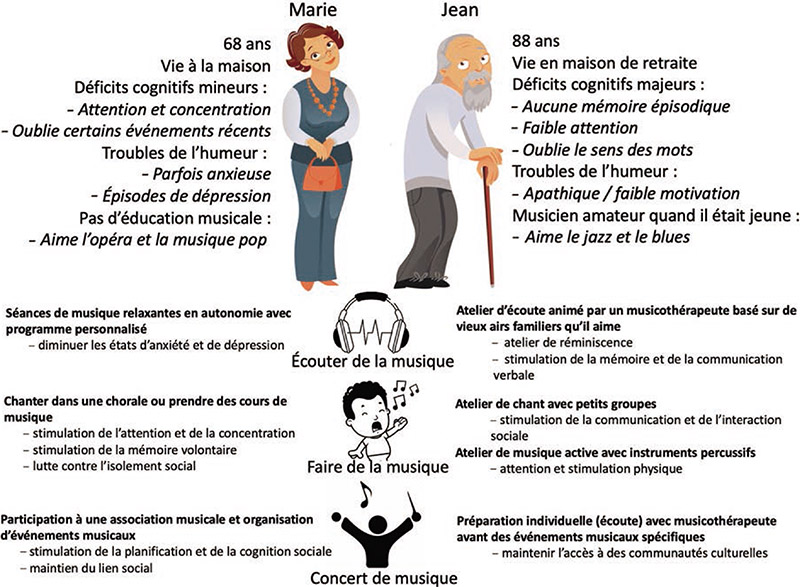Revue de neuropsychologie
MENUMusical intervention, music therapy, and Alzheimer’s disease Volume 15, issue 1, Janvier-Février-Mars 2023
Figures
- Key words: Alzheimer’s, music, music therapy, memory, emotions
- DOI : 10.1684/nrp.2023.0743
- Page(s) : 45-50
- Published in: 2023
There are many clinical practices with music for Alzheimer’s or related patients. These proposals generally arouse great satisfaction from patients and caregivers; however, we could notice a flagrant heterogeneity of actions and training, and most of the time no measure of effectiveness is carried out. Thus, it remains to be demonstrated that in many circumstances the clinical “effect” (physiological, cognitive, behavioral or psychological improvement) is directly produced by listening to music or by playing it. In recent years, the contribution of neuroscience work (clinical neuropsychology, functional neuroimaging) on this topic has led to a better understanding of the neural substrates of music (perception, memory and emotion) and of the interactions between different cognitive domains (language, reasoning, attention…). The literature in this field is now reaching a level of maturity which makes it possible to offer Alzheimer’s patients a range of “music therapy” actions targeted and reasoned in their prescriptions, with clear therapeutic objectives. For example, at the beginning of the disease, when distress, depression and anxiety go hand in hand with the drop in cognitive performance, receptive music therapy as a psycho-musical relaxation technique is very useful for treating these psychological and behavioral disorders. During the severe phase of AD, it becomes more difficult to find activities that are suitable for patients and that elicit positive emotions and behaviors. Also, musical interventions in the form of singing workshops are very useful in fighting apathy and stimulating verbal communication.


